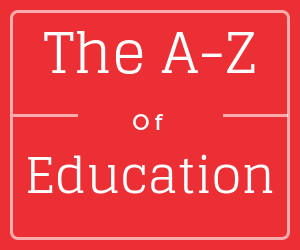Black Boys in Crisis: How Schools Can Help

In this series, appropriately titled “Black Boys in Crisis,” I highlight the problems facing black boys in education today, as well as provide clear steps that will lead us out of the crisis.
When it comes to solving the black boy crisis, schools and educators are the first lines of defense. Why? Because children spend a significant amount of time in our country’s schools. Also, teachers have more influence than they realize. There are a myriad of issues surrounding the black boy crisis that schools can help mitigate. In this article, we will discuss these opportunities, one by one.
One simple issue that teachers can address is teacher–parent communication. Every teacher needs to ensure that this channel is open. It is important to note that, especially in poor communities, not all parents may have email capabilities. If they do, they may not check their emails all that often. Those parents may be best reached by phone or by letter. You may, in fact, choose to send the same information in multiple ways: by phone message, email message, and a note sent home with the child.
Make every effort possible to meet with the parents of each child. If they don’t show up at a scheduled meeting, try again. And again. It is easy to become frustrated and then noncommittal, placing the blame on the parents. Remember, however, that the boy whose parents don’t have the wherewithal to make it to a meeting is often the child who most needs the attention.
In a similar vein, communication about early-intervention services is crucial. Far too often, the child who most needs the early intervention is the one whose parents are not in a position to hear about it. It is absolutely imperative that children who are floundering be given the tools they need to survive in the classroom. Early intervention can assist with that, but if the parents don’t know about the services, the children won’t be able to take advantage of them.
This is an area where communication between all parties is necessary, but the teacher plays a key role. The teacher is often the first to spot that a child needs intervention. He or she should be aware of the next steps and should take charge of the communication without delay. Every school should have a solid plan in place, with clear, specific action steps to take should a child be flagged for intervention.
Especially in lower socioeconomic neighborhoods, disruptive behavior can be a problem in schools. As we earlier in the series, these problems are increasingly being dealt with by calling in law enforcement or by harsh discipline. For a black boy, this response all too often leads, eventually, to prison.
However, there is an alternative. Schools across the nation are turning to restorative justice, with enormous success. Restorative justice places the focus on solutions that benefit all parties involved in the conflict. It steers away from punishment and tries to help the offender to understand how he hurt the victim, encouraging him to make the victim whole again. The result is a much lower rate of repeat offense and a transformed sense of social relations. Restorative justice should become the de facto method of dealing with disruptive behavior in schools across the nation.
Multiage classrooms, as we learned earlier in the series, can be especially beneficial for the black boy. The rigid strictures of the prevailing system, which tries to churn out high-performing students like cookies on a conveyer belt, are loosened in multiage classrooms. Students who are struggling in a subject area can get the help they need while remaining in contact with their peers. This means that the shaming and bullying that often go with retention are no longer a factor.
Similarly, the problems of leaving a child behind that go with social promotion are negated. Transforming school systems to multiage classrooms can take a lot of work, at all levels of the school hierarchy. Furthermore, some parents may protest against the new system, feeling it cheapens their child’s education. However, if the kinks can be worked out, multiage classrooms—especially for younger children—can work wonders.
Along with multiage classrooms, integrated tracking should be standard in schools across the nation. As the Finnish model demonstrates, integrated tracking benefits all students, keeping them together while allowing those who need an extra boost to receive it.
Another transformation that can take a lot of work but has a dramatic impact is a shift to incorporating Howard Gardner’s notion of multiple intelligences. This recognition that individual students have gifts that should be nurtured, and the greater focus on the arts and physical education, can be tremendously liberating for black boys. Though it may seem counterintuitive, students at schools that embrace Gardner’s principles tend to do better on the standard assessments. This suggests that a holistic education, which provides students with a passion for learning, produces better results than spoon-feeding student’s information they can use on a standardized test.
As a corollary to the above, our nation’s schools need to move to a focus on acquiring critical-thinking skills, rather than simply learning facts. Our country requires young people who can use their talents to innovate; who have the ability to research a topic, digest the information, and use it to create something new or enhance their lives. Emphasizing critical thinking rather than teaching to the test will, of course, require changes at government or state level; however, it can also be enacted at the school level.
Finally, teachers should receive the training and support they need to teach young African-American boys. Particularly in the lower grades, teachers are overwhelmingly white and female. In fact, black male teachers comprise less than one percent of the teaching force. This means that most black boys are being taught by teachers who are not intimately familiar with the issues they are going through. Training in racism awareness should be mandatory in schools across the country.
Teachers should also be provided with mentors for the first two years of their service. Ideally, these mentors would have experience and training in working with African-American boys and would be able to pass on advice and provide new teachers with the tools to deal with difficult situations.
Can you think of any additional ways that schools and teachers can help end the black boy crisis?





